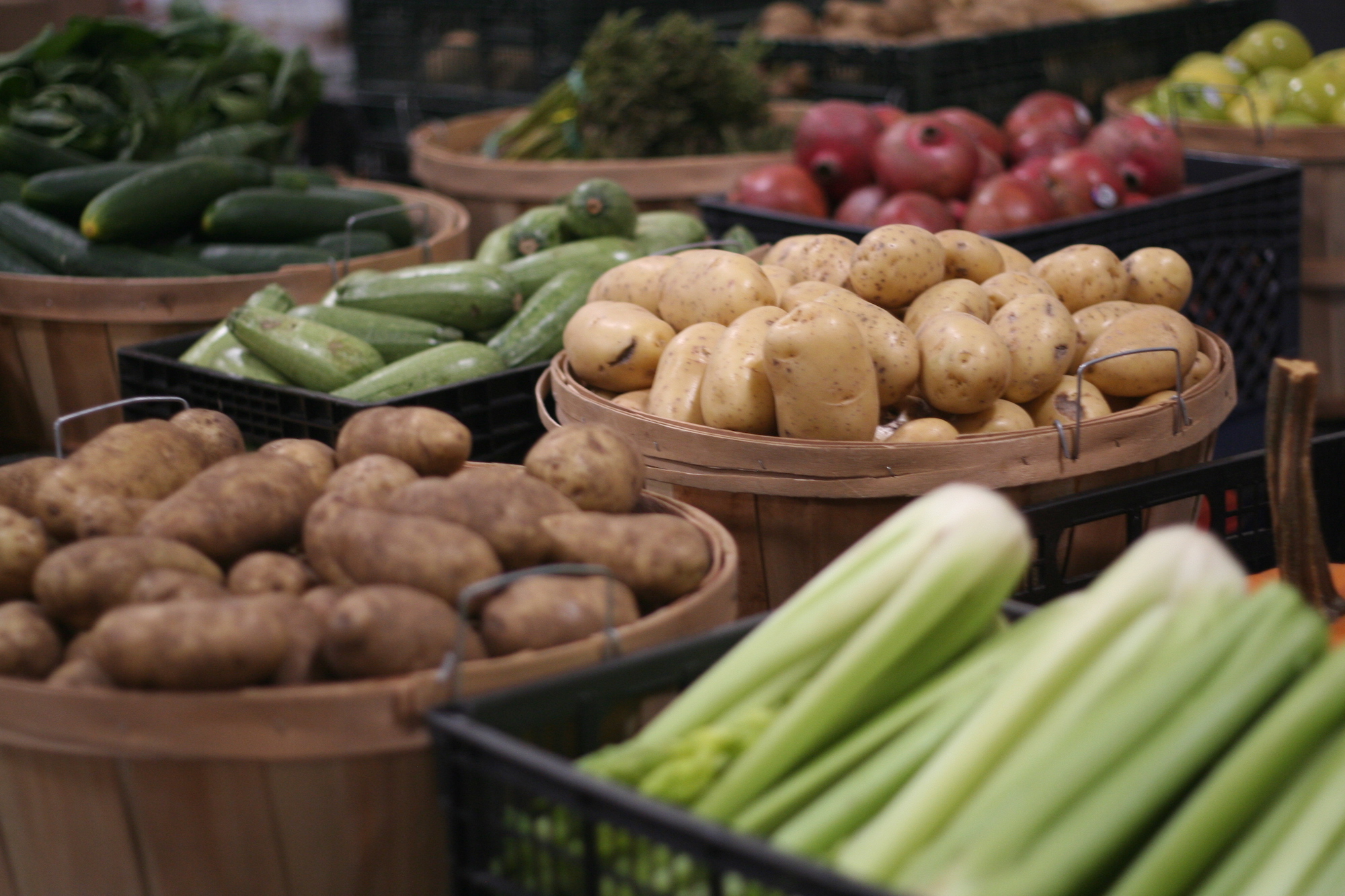
These potatoes, celery, pomegranates, squash, and more were recovered from the Wholesale Produce Market and distributed to 17 member agencies of the Antelope Valley Food Hub Collaborative.
Across the country, most households have consistent access to healthy, nutritious food, but for many Americans, food security is not a guarantee. A 2018 study by the USDA’s Economic Research Service found that 11.1% of U.S. households are food insecure.1 Though California and Los Angeles County are slightly below this nationwide average, LA County is still home to roughly 1.1 million food-insecure individuals,2 and food security varies greatly at the local level. The Antelope Valley faces one of the highest rates of food insecurity in the state, with more than 50% of all households experiencing low or very low food security. In the Antelope Valley, 34.4% of households reported low food security, the highest rate in LA County. The Antelope Valley also had the second-highest incidence of very low food security (16.3%), surpassed only by the Downtown/Metro area (16.9%).3 Research has continued to reinforce that food insecurity is a public health crisis, and healthcare providers are increasingly recognizing food security as a key social determinant of health.
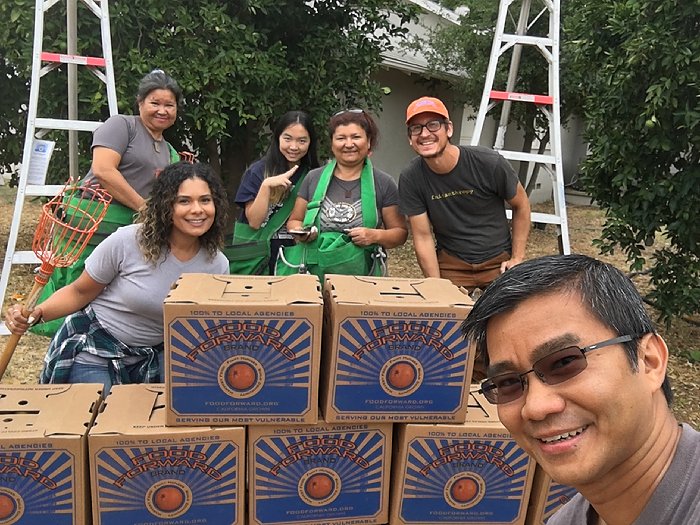
Antelope Valley Partners for Health staff (including Pick Leader Adel Domingo) and Food Forward staff pose for a group picture after a bountiful harvest!
Antelope Valley Partners for Health is one such organization that has stepped up to address food insecurity in their community. AVPH became a Food Forward Receiving Agency in the fall of 2017, even going so far as to have several staff members train as Pick Leaders for the Backyard Harvest Program. The fruit that they received (and often picked themselves!) was used in their weekly emergency meals program as well as their biweekly food pantry, but AVPH was determined to do even more to increase the resiliency of their community. AVPH wanted to create a network of hunger relief organizations all working to address food insecurity in one of the least food-secure regions in LA County, and use this network to connect these organizations to fresh produce rescued by Food Forward’s Wholesale Recovery Program. This idea ultimately became the Antelope Valley Food Hub Collaborative, a partnership coordinated by Antelope Valley Partners for Health, sponsored by Antelope Valley College, and supported by donations of fresh produce from Food Forward.
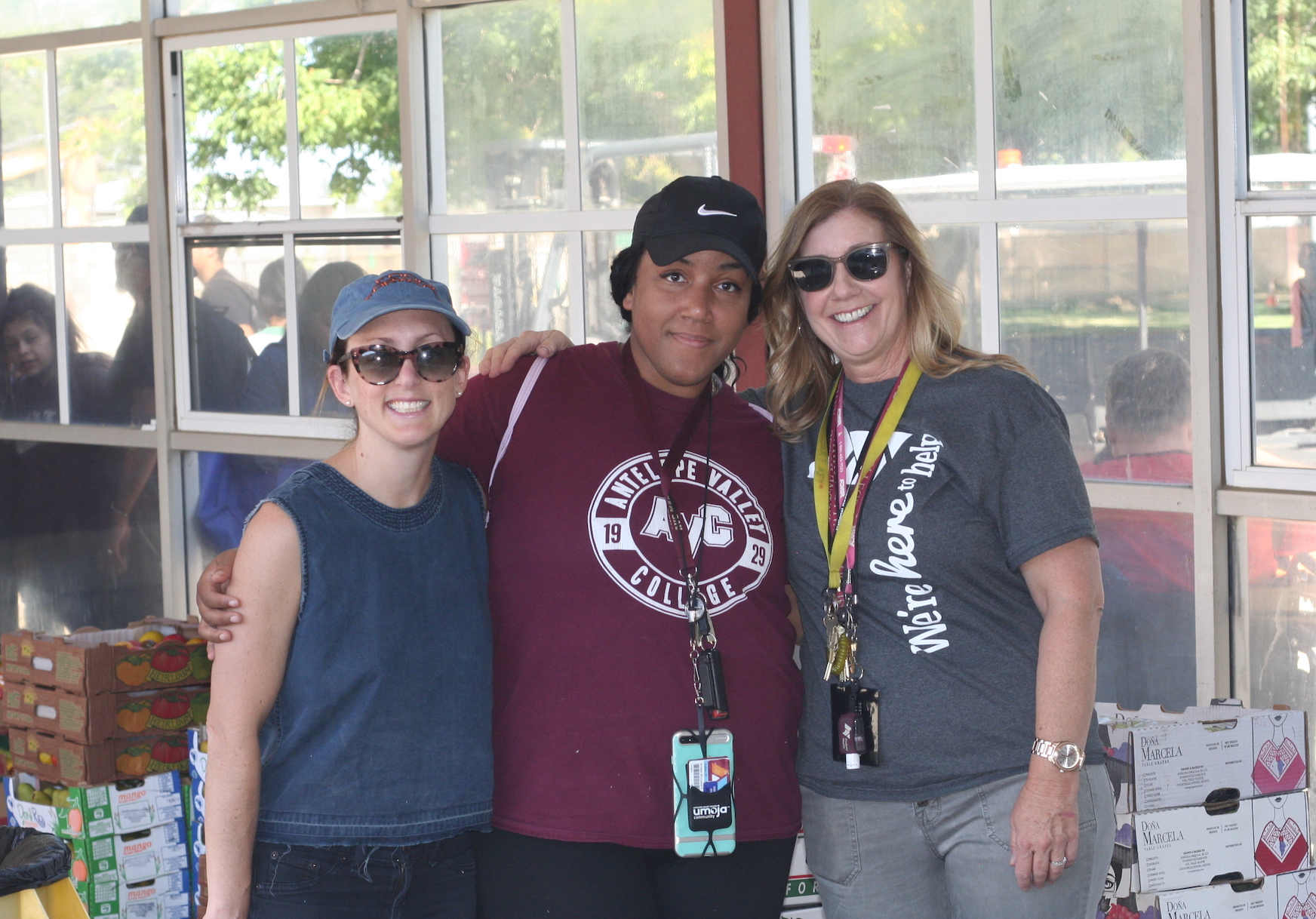
Food Forward’s Field Coordinator Michele Chase poses with folks from Antelope Valley College.
Just before sunrise every second and fourth Thursday of the month, a Food Forward Wholesale Recovery Program truck pulls into the parking lot at Antelope Valley College to deliver ten pallets of fresh produce. In a flash, an Antelope Valley College forklift operator unloads the truck and lines up the pallets for AVPH staff to prepare for their member agencies to pick up. Through the continued hard work and dedication of the AV Food Hub Collaborative partners, Food Forward has been able to share an abundance of fresh produce with an incredible network of organizations in the Antelope Valley. Since the first delivery in February of 2019, the AV Food Hub Collaborative has grown to 17 such member agencies, and this network redistributes roughly 30,000 pounds of Food Forward produce every month. Collectively, the AV Food Hub Collaborative serves about 3,500 households a month.
One Collaborative member is Antelope Valley College itself, which operates the ASO Hearts & Hands Pantry as well as the Marauder Market. Every week that the AV Food Hub Collaborative receives a delivery, the college hosts the Marauder Market, a pop-up food pantry at the Student Center Patio on campus. As soon as the AV Food Hub Collaborative distribution ends, Antelope Valley College staff shuttle their share of the produce to the Marauder Market where students, faculty, staff, and community members alike are able to select from their choice of fruits and vegetables at a free farmers’ market-style event. The Marauder Market engages an average of 450 people each month, creating reliable access to fresh, nutritious produce in a welcoming environment.

Health Educator Kassah Kantiok (right) demonstrates how to prepare a healthy rice pilaf utilizing vegetables recovered from the Wholesale Produce Market.
Another event supported by the AV Food Hub Collaborative is the Food Pantry at Antelope Valley Partners for Health. In October, three Food Forward staff members joined the crew of volunteers that help support the twice-monthly AVPH Food Pantry, and they were able to get a close-up view of the impact that AVPH has in their community. Just before the pantry opens, a cooking demonstration is hosted where AVPH staff feature a recipe made from produce that will be available that day. During Food Forward’s volunteer day, Health Educator Kassah Kantiok prepared two types of rice pilaf for everyone to sample, and the crowd in attendance was so engaged and involved that they were all swapping cooking tips—from how to keep from crying while cutting onions to how to properly chop vegetables without losing a finger! At the pantry, AVPH features produce from Food Forward as well as donations from local and regional partners Fire Island Grill, Prime Time Nutrition, Stater Bros, Trader Joe’s Palmdale, LA Regional Food Bank, Leah’s Pantry, and MEND Pacoima, and every month they distribute produce (and culinary know-how) to an average of 1,120 people. AVPH Health Educator Karina Lopez says that “The AVPH Food Pantry has grown immensely and we could not do it without partnering with Food Forward. They have helped support our healthy food pantry goal by supplying fresh produce to our community and we, and our clients, are extremely thankful.”
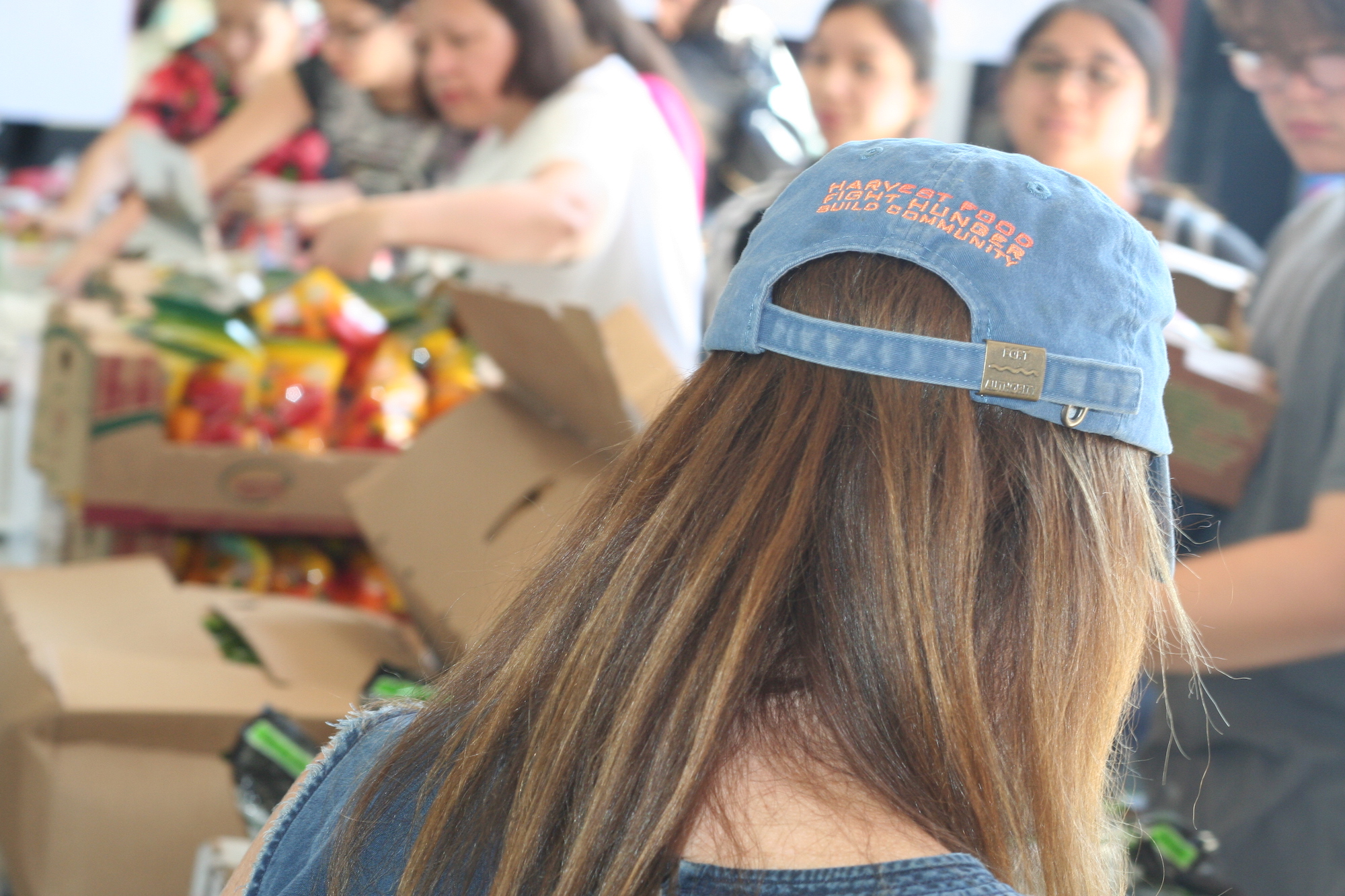
Students, faculty, staff, and community members receive produce at Antelope Valley College’s Marauder Market.
Every month, the AV Food Hub Collaborative ensures that rather than heading to a landfill, twenty pallets of surplus produce are instead distributed to hunger relief agencies in the Antelope Valley. These free fruits and vegetables reach thousands of people living in one of the most food insecure areas of our state. Ashley Orellana of AVPH noted that “The food pantry has helped me recognize that not only it helps feed a community, but behind the scenes it helps bring people together.” Time and again, the Antelope Valley Food Collaborative demonstrates that by working together to address food insecurity, we are all greater than the sum of our parts.
